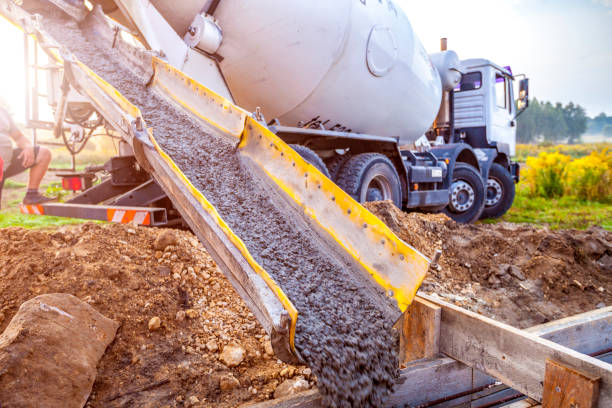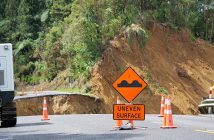While the Government is not obliged to formally respond to the New Zealand Infrastructure Commission’s 30-year Strategy until September, it would be negligent not to act now with urgency, Civil Contractors Chief Executive Alan Pollard says

New Zealand’s civil contractors have welcomed Rautaki Hanganga o Aotearoa – New Zealand Infrastructure Strategy 2022–2052 as ‘a new beginning’ and look forward to working to address the country’s massive infrastructure deficit with increased support, better planning, and targeted investment from government.
The strategy provides vital vision and direction for the country’s infrastructure networks, framing challenges and solutions in a way that gave ‘much-needed clarity’.
This national blueprint shows us how much work we have to do to get where we need to be, laying out the challenges and proposing solutions from an objective viewpoint, providing avenues for consensus and setting a coherent plan that can adapt to our future needs.
The Strategy laid bare the huge task in bringing the country’s infrastructure up to date, with a massive construction worker shortfall projected to reach 118,500 by 2024, construction costs rising 60 per cent faster than the rest of the economy, an infrastructure deficit of $210 billion, and a need for infrastructure spending at $31 billion a year.
As well as challenges, the Strategy also explored potential solutions and ways to work smarter, as opposed to simply spending more. Of particular significance was where spending would have the most positive effect.
Balancing the need to maintain existing infrastructure as well as build new was important, as was the need for government, support agencies and industry to partner on the implementation of the strategy.
We now have a shared direction we all need to get behind long-term. Not just infrastructure constructors, who have been aware of and working to resolve these challenges for some time, but Government, opposition parties, iwi, local government, and everyday Kiwis.
These things applied on a massive scale such as through State Highways, major projects and urban centres; but they were just as relevant at the smaller scale of a community or individuals.
We need to change our thinking about infrastructure. It’s important we consider more than just major projects, but also think of the road or public transport that takes us where we need to go, the pipe that brings water to our house, and the people that make the system work.
The strategy calls for systemic change to better construct, support and maintain the essential infrastructure the country needs over coming decades, as well as the resource to maintain and support existing transport, water, energy, and other infrastructure networks.
The Government is required to respond to the 68 recommendations provided in the strategy by September. There were key investments required if the country was to step up to meet its infrastructure needs, and the first test would be the delivery of Budget 2022 on 19 May.
We know contractors need more people and the confidence they will get the funding they need to invest in plant and equipment if they are to have any chance on delivering on NZ’s multi-faceted future infrastructure needs. Not just to overcome the deficit on deferred new capital works, but also to replace and repair our existing well-worn water, transport and other infrastructure networks.
It’s not all about spending more either. The Strategy also sets out ways to address our challenges. There are better ways to work and big wins to be had through reform of the Resource Management Act and consenting process, investment in vocational education for infrastructure trades on-shore and talent attraction offshore, and easing pressure on supply chains.
CCNZ has urged Government and opposition to commit to infrastructure and support the investment needed to get the work done building and maintaining NZ’s transport, water, energy, and communications networks. Not just for big projects (although those are important), but also for the work that goes into repairing and maintaining our roads, water networks and other infrastructure every day.
Any loss of momentum now will create serious resourcing and delivery risks downstream, and most of all we need confidence, leadership and investment from clients to meet the challenge head-on.
Finance Minister Grant Robertson will deliver the 2022 budget on 19 May, and the government must respond to the country’s infrastructure, workforce, and cost escalation challenges in this budget.
This is a critical time for New Zealand and the budget on 19 May will be a good test of whether this government is truly committed to addressing the massive infrastructure deficit and supporting the industry to do what we all now know needs to be done.








